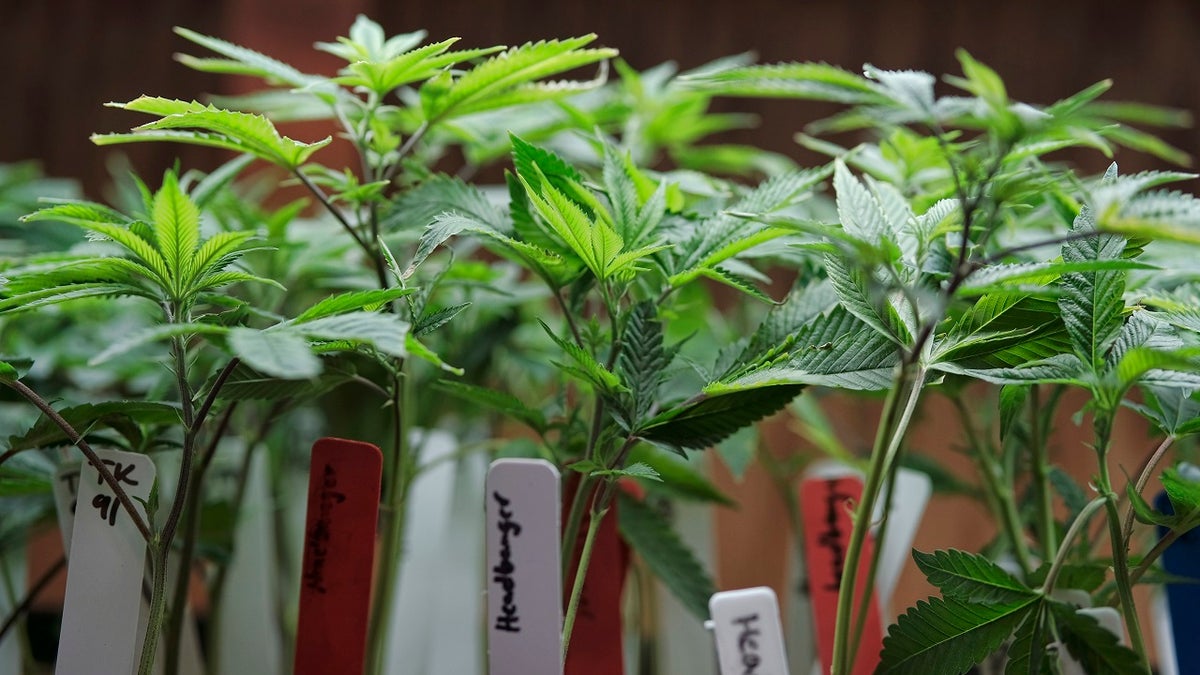
Vermont Gov. Phil Scott indicated he would sign a bill approved by both the House and Senate that would allow the recreational use of marijuana. (AP)
The Vermont Senate on Wednesday gave final approval to a bill that would allow the recreational use of marijuana, putting the state on course to become the first in the country to legalize pot by an act of the Legislature rather than through a referendum by voters.
By voice vote, the Senate agreed to the proposal that would make it legal for adults to possess and grow small amounts of marijuana but does not set up a system to tax and regulate the production and sale of the drug. The House approved the bill last week, and Gov. Phil Scott has indicated he will sign it.
"Today the Vermont Senate moved Vermont one step closer to a rational approach to marijuana," Senate President Pro Tem Tim Ashe, a Democrat and Progressive, said in a statement. "Tens of thousands of Vermonters will no longer feel like they're committing a crime for their private, responsible use of marijuana."
Senators who voted against the bill didn't ask for a roll call. It takes effect July 1.
"I think this is a very exciting criminal justice reform for Vermont. There have been terrible harms that have happened in the name of marijuana prohibition that have disproportionately affected poor people and people of color for far too long," said Laura Subin, director of the Vermont Coalition to Regulate Marijuana.
Once the bill takes effect, Vermont will become the ninth state in the country, along with the District of Columbia, to approve the recreational use of marijuana and the only area where the law wasn't created by the vote of residents. Vermont does not allow referendum votes.
Justin Strekal, political director for the National Organization for the Reform of Marijuana laws, said Vermont and the District of Columbia are the only jurisdictions without a tax and regulation structure as part of their marijuana legalization laws.
The legalization laws in Maine and Massachusetts call for tax and regulation structures, but they have not yet been set up, although personal marijuana use and possession are legal in those states.
The Vermont bill would allow adults 21 and older to possess of up to 1 ounce of marijuana and have two mature marijuana plants or four immature plants.
Last spring, the Legislature passed a similar bill, but Scott vetoed it because the Republican thought it didn't do enough to protect children from marijuana and enhance highway safety. Lawmakers changed the proposal to address the governor's concerns, but there was not enough time left to pass it.
Democratic state Sen. Richard Sears, who has been working for marijuana legalization for years, said the bill passed Wednesday was an important first step.
"A lot of work has taken place, but we're still not there yet," Sears said. "I don't think we're there until we see a tax and regulated system."
He said it would be OK if Vermont went for a year or so without a tax system. A commission formed by Scott last summer to study the issue is scheduled to release a report in December with suggestions on how the system could be set up.
Not everyone was happy with the bill's passage. Aubree Adams traveled to Vermont from Pueblo, Colorado, tell lawmakers she believes legalization in her state has had unintended consequences. She works with the group Moms Strong, whose mission is to educate the public about the harms of marijuana, according to its website.
"I'm here as a living witness ... to let you know the legalization of marijuana means promotion, it's not a solution to prohibition," she said. "Vermont has already decriminalized so it's a false narrative that the lobbyists and the marijuana promoters are giving Vermont and the Legislature."











































